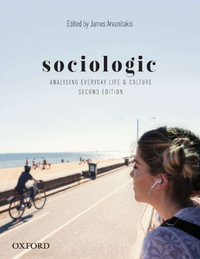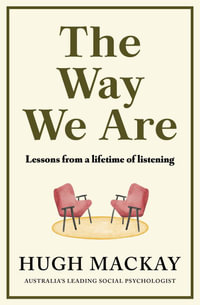Our shared concern for the victims of sex trafficking represents a rare spot of common ground in contemporary political discourse. Galvanized by impassioned accounts of the abduction and forced labor of women and girls, such normally divergent groups as evangelical Christians, secular feminists, aid workers, and corporate scions have all rallied behind anti-trafficking initiatives and legislation. But just how well do these sweeping concerns and legal efforts mesh with the lived realities of the sex trade, and where exactly did the modern conception of sex trafficking originate?
In answering these questions, Brokered Subjects digs into the accepted narratives of sex trafficking to reveal the troubling assumptions which have shaped both right and left-wing agendas around sexual violence. Drawing upon years of in-depth field work, Elizabeth Bernstein sheds light not only on trafficking but on the broader structures that meld the ostensible pursuit of liberation with contemporary techniques of power. Rather than any meaningful commitment to the safety of sex workers, Bernstein argues, what lies behind our current vision of trafficking victims is a transnational mix of putatively humanitarian militaristic interventions, feel-good capitalism, and what she terms carceral feminism: a feminism compatible with police batons.
Industry Reviews
"Brokered Subjects...presents groundbreaking insights from Bernstein's lengthy and wide-ranging ethnographic enquiry into the discur-sive construction of 'traf?cking, ' research that included in-depth interviews with antitraf?cking activists and politicians, participant observation at antitraf?cking events and policy meetings, 'rescue projects, ' and (with Elena Shih) an antitraf?cking 'reality tour' in Thailand. Data from this research, alongside careful attention to the extant literature on antitraf?cking and critical engagement with contemporary social theory, allow Bernstein to complicate and advance existing critiques. . . . The powerful and thought-provoking sociological analysis advanced in Brokered Subjects is unlikely to become obsolete any time soon."--Julia O'Connell Davidson "American Journal of Sociology"
"This [is a] fascinating, readable and compelling book by one of the leading theorists of sexual politics today. Brokered Subjects is thoroughly researched, thoughtfully argued, and should be read by anyone who fashions themselves invested in or critical of anti-trafficking. This is an invaluable study and one that will be guiding critical inquiry for many years to come. Indeed, what we are left with after reading Bernstein's book is the profound question of what remains when 'human trafficking' is no longer the framework through which freedom is brokered in late capitalism,"-- "Criminal Law and Criminal Justice Books"
"Brokered Subjects reveals how central questions of sexuality and gender are to new forms of neoliberal governance and racial power in national and transnational politics. Bernstein reveals why discourses of anti-trafficking campaigns have become ubiquitous across left- and right-wing politics. She shows with powerful ethnographic research and evidence how anti-trafficking brings together a range of political actors who have the power to define sexuality, morality, and what women--especially poor ones--need to do with their bodies. This is important reading for activists, policy makers, NGOs, and researchers."-- "Inderpal Grewal, Yale University"
"My enthusiasm for this thoughtful and masterful ethnographic analysis of trafficking discourse is unqualified. Bernstein offers a provocative challenge in tracing the work that decades of anti-trafficking interventions have been doing--from facilitating a billion-dollar industry of good intentions reinforced by a white savior industrial complex, to reinforcing sexual, cultural, and racial stereotypes, as well as emboldening a new sexual politics that has securitized rather than enabled the freedom of disenfranchised constituencies. Brokered Subjects is a bold and timely book that is bound to compel a rethinking of contemporary understandings of gender progress and freedom."-- "Ratna Kapur, Queen Mary University of London"
























